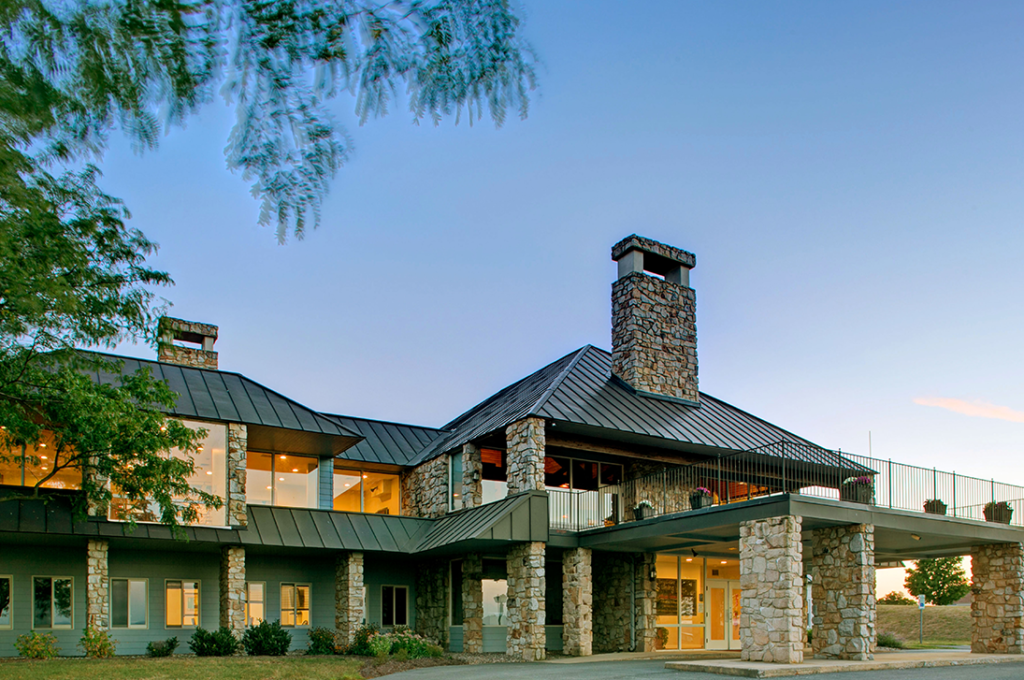Refuge Recovery is an evidence-based approach to helping people with substance use disorders. Refuge treatment centers focus on the Buddhist principles of mindfulness and compassion, which can help individuals understand their behavior and find a path to long-term recovery.
At Recovery Ranch, we understand the value of Refuge Recovery in helping individuals with addiction issues. Our addiction therapy programs provide a safe space for those seeking treatment tailored to their needs. Call 1.844.876.7680 today to learn more about how we can help you begin your journey toward lasting recovery.
What Are Refuge Recovery Programs?
There are as many types of recovery tools as people in need of them. Some fall into the familiar categories of inpatient rehab, outpatient therapy, intensive outpatient, and 12-step programs such as Alcoholics Anonymous or Narcotics Anonymous. A lesser-known application is Refuge Recovery, a Buddhist Path to Recovery, created by the author, counselor, and Buddhist teacher Noah Levine.
According to Nyanatiloka’s Buddhist Dictionary, a Manual of Buddhist Terms and Doctrines: “The basic dharma of Buddhism is oneness. Oneness includes, rather than excludes.” Levine designed an experience that would have a greater chance of appealing to those who might not feel comfortable in a traditional 12-step setting, especially if they were, like he was, a tattooed punk rock-loving addict. People from all walks of life and spiritual practices, including those who consider themselves secular in their beliefs, are welcome in Refuge Recovery.
Refuge Recovery Defined
Levine defines Refuge Recovery as “a Buddhist-oriented, non-theistic recovery program that does not ask anyone to believe anything, only to trust the process and do the hard work of recovery.” It asks individuals to investigate the process and look deeply at the suffering that addiction has brought about in their lives. No previous experience or knowledge of Buddhism is required. Recovery is possible, and Refuge Recovery provides a systematic approach to treating all forms of addiction. When sincerely practiced, the program will help those recover from addiction, ensuring lifelong well-being and happiness.
Refuge Treatment Center Principles
According to Ryan Sachse, a therapist who incorporates Refuge Recovery into treatment, it is a practice, a process, a set of tools, and a path to healing the suffering caused by addiction. The main inspiration and guiding principles of Refuge Recovery are the teachings of Siddhartha Gautama, more commonly known as Buddha, who lived in India 2,500 years ago.
Buddha was a radical psychologist and a spiritual revolutionary who understood suffering by discovering the Four Noble Truths and the Eightfold Path. These concepts feature prominently in Refuge Recovery:
- We suffer due to our addictions and the general difficulties of being human in this world of constant change and loss.
- Craving is a natural phenomenon; it is not our fault, but we are fully responsible for our healing and recovery.
- We can fully recover and enjoy a life of sanity and well-being.
- This is the path to recovery: the Eightfold Path.
The Eightfold Path of Buddhist Rehab Programs
The Eightfold Path of Buddhism is integral to Refuge Recovery Buddhist rehab programs. The Eightfold Path includes the following:
- Understanding: We know that everything is ruled by cause and effect.
- Intention: We renounce greed, hatred, and delusion. We train our minds to meet all pain with compassion and all pleasure with non-attached appreciation.
- Communication/Community: We take refuge in the community to practice wise communication and support others on their paths. We practice being careful, honest, and wise in our communications.
- Action/Engagement: We let go of the behaviors that cause harm. We ask that one renounces violence, dishonesty, sexual misconduct, and intoxication. Compassion, honesty, integrity, and service are guiding principles.
- Livelihood/Service: We are of service whenever and wherever possible. And we try and ensure that our means of livelihood are such that they don’t cause harm.
- Effort/Energy: We commit to daily contemplative practices like meditation and yoga, exercise, and the practices of wise actions, kindness, forgiveness, and compassion, which lead to self-regulatory behaviors under challenging circumstances.
- Mindfulness/Meditations: We develop wisdom using practicing formal mindfulness meditation. We practice present-time awareness in our lives.
- Concentration/Meditations: We develop the capacity to focus the mind on one thing, such as the breath, or a phrase, training the mind through the practices of loving kindness, compassion, and forgiveness to cultivate that which we want to uncover.
When those in recovery at a Refuge treatment center view themselves through the eyes of compassion and kindness and not simply judgment, then, according to the teachings of this modality, they are more likely to find peace.
Start a Buddhist Drug Rehab Program at Recovery Ranch
At Recovery Ranch, we are committed to offering compassionate care in an atmosphere of acceptance and understanding so that individuals may reach their highest potential in recovery. We strive to provide an environment where individuals with substance use disorders can build trust while taking ownership of their sobriety journey.
By choosing The Ranch as your path toward sobriety, you’ll embrace self-care and inner strength rather than external forces or outside influences. If you or someone you know is struggling with addiction, please contact us today at 1.844.876.7680 so we can help you find true healing. Together we can make a difference in your life.


